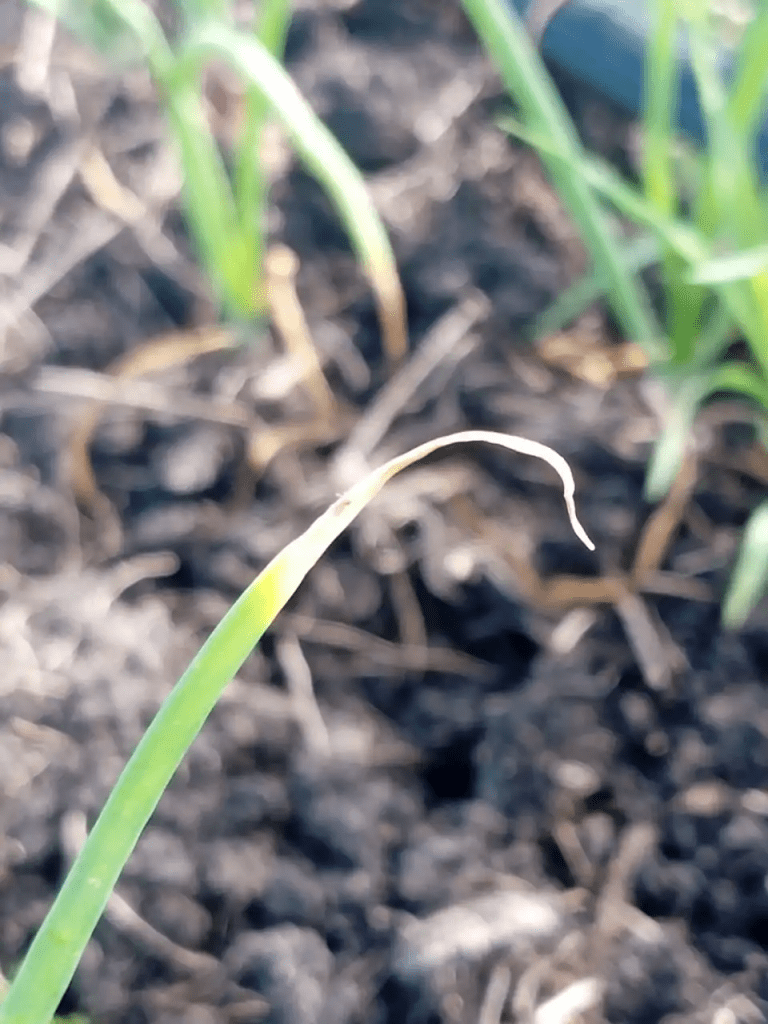Onion farming in Kenya is a thriving venture, with farmers across regions like Kajiado, Nyeri, and Nakuru cultivating bulb and spring onions to meet the nation’s insatiable appetite for this kitchen staple. But lurking in the fields, there’s a villain that threatens to turn those juicy, pungent bulbs into a farmer’s nightmare: downy mildew. This fungal-like disease, caused by the sneaky oomycete Peronospora destructor, loves to crash the onion party, especially in Kenya’s cool, wet seasons. Onion farming in Kenya is a lucrative agribusiness, with the potential to yield up to 25 tonnes per acre, but downy mildew can slash those dreams by up to 50% if left unchecked. Whether you’re a seasoned farmer or a newbie trying onion farming in Kenya for the first time, understanding this pesky pathogen is key to keeping your crops thriving. From the vibrant markets of Nairobi to the rural farms of Kieni, onion farming in Kenya is a cultural and economic cornerstone, yet downy mildew remains a persistent challenge. So, let’s dive into the world of onion farming in Kenya, explore this fuzzy foe, and arm you with tips to keep your onions mildew-free!

Downy mildew in onions is a serious fungal disease caused by Peronospora destructor. It thrives in cool, moist conditions and can lead to significant yield loss if not managed early
SYMPTOMS OF DOWNEY MILDEW
- Pale or yellowish spots on leaves, which later turn brown and collapse.
- Leaf curling and tip dieback.
- Premature bulb ripening and reduced bulb size.
- Severely infected fields may show patchy stunted growth.
CONDITIONS THAT FAVOR DOWNEY MILDEW
- Cool (10–22°C or 50–72°F), moist environments.
- Prolonged leaf wetness from dew, rain, or irrigation.
- Dense canopies that reduce airflow.

EFFECTS OF DOWNEY MILDEW IN ONION
- Downy mildew in onions causes yellowing, curling, and collapse of leaves, reducing photosynthesis.
- It leads to stunted growth, premature bulb ripening, and smaller, lower-quality bulbs.
- Severely infected crops suffer 30–60% or more yield loss.
- The disease also increases vulnerability to secondary infections like soft rot.
- Economic impacts include reduced market value and higher costs for fungicides and crop management.
MANAGEMENT STRATEGIES OF DOWNEY MILDEW
- Choose Resistant Varieties:. Opt for hybrids like Red Pinoy F1 or Red Passion F1, which show tolerance to downy mildew. Source high quality seedlings from Onion Doctor accredited dealers to ensure quality.
- Smart Irrigation Practices: Overhead irrigation is downy mildew’s best friend—it keeps leaves wet and spores happy. Switch to drip irrigation, which delivers water directly to the roots, keeping foliage dry. Onion Doctor offers affordable drip irrigation system.
- Crop Rotation and Field Hygiene: Downy mildew spores can lurk in soil or infected bulbs for years. Rotate crops with non-hosts like maize or beans, and never compost infected plants. Burn or dispose of them in a bio-digester to stop the spread.
- . Fungicides to the Rescue: When prevention isn’t enough, fungicides like Ridomil Gold or can save the day. Spray early. Always follow recommended schedules to avoid resistance. Onion Doctor can offer you a full spray and feeding program for more info Message Onion Doctor Ltd on WhatsApp. https://wa.me/254706252490.
- Timing Is Everything: Plant during the short rains (October-December) to harvest in January-February when Tanzania’s supply dips, and prices soar. Raised beds and well-drained soils (pH 6.0-6.8) reduce waterlogging risks.
Contact us for: Onion seedlings, Garlic seedlings, Germinated garlic cloves, Farm planning services, Soil testing, training on onion and garlic growing, Drip irrigation installation and maintenance, Agronomic support, Onion and Garlic value pack and Farm management. For free consultation, placing orders or booking a visit with an agronomist, please contact us via Call or what’s app +254703982228, Email: Info@oniondoctor.co.ke. You can also check out our social media handles for daily updates on TikTok: https://www.tiktok.com/@oniondoctorke?_t=ZM-8wmsTu0qumO&_r=1 Instagram: https://www.instagram.com/oniondoctorke?igsh=MTVoaHF3aWUydTJzaQ==Facebook:https://www.facebook.com/share/16SwgYn2dG/ Youtube:https://youtube.com/@oniondoctorke?si=u5Jnd-r0qU9UDYqL and Twitter: https://x.com/OnionDoctorKe?t=FR3JXlS_oN1vjjUgAtfyzg&s=09


